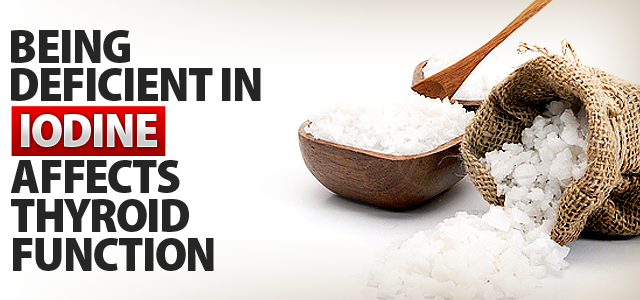After extensively reading about the importance of iodine and investigating all the implications related to the Iodine Deficiency, I can’t believe how such an important public health issue can be happening in the UK for so long.
Great Britain suddenly doesn’t look that great! It is one of the 10 most iodine-deficient countries in the world today.

The really important questions that we need to address are so crucial for us and the future generations:
-How will impaired mental function in newborns affect their lives, lives of their families and the country’s economy?
-Who is covering the medical bills of all the patients that are affected by this silent epidemic (thyroid problems, miscarriages, mental retardation and much more, less known or “visible” health issues)?
-What are we doing about it, and how to raise the awareness and beat this huge public health problem?
-Why the government and the health system (read - sick system) are not taking any significant steps to warn the public and resolve this problem, even just partially?
Of course, we can ask many more questions and debate on all of them. But it is a pure logic that much more can be done to prevent this from happening to a such an extent…
This abstract is going to give you more insight into this public health issue:
“This review describes historical iodine deficiency in the U.K., gives current information on dietary sources of iodine and summarizes recent evidence of iodine deficiency and its association with child neurodevelopment.
Iodine is required for the production of thyroid hormones that are needed for brain development, particularly during pregnancy.
Iodine deficiency is a leading cause of preventable brain damage worldwide and is associated with an impaired cognitive function. Despite a global focus on the elimination of iodine deficiency, iodine is a largely overlooked nutrient in the U.K., a situation we have endeavored to address through a series of studies.
Although the U.K. has been considered iodine-sufficient for many years, there is now concern that iodine deficiency may be prevalent, particularly in pregnant women and women of childbearing age; indeed, we found mild-to-moderate iodine deficiency in pregnant women in Surrey.
As the major dietary source of iodine in the U.K. is milk and dairy produce, it is relevant to note that we have found the iodine concentration of organic milk to be over 40% lower than that of conventional milk.
In contrast to many countries, iodized table salt is unlikely to contribute to U.K. iodine intake as we have shown that its availability is low in grocery stores.
This situation is of concern as the level of U.K. iodine deficiency is such that it is associated with adverse effects on offspring neurological development; we demonstrated a higher risk of low IQ and poorer reading accuracy scores in U.K. children born to mothers who were iodine deficient during pregnancy.
Given our findings and those of others, iodine status in the U.K. population should be monitored, particularly in vulnerable subgroups such as pregnant women and children”.
Dear readers, please contribute to raising the awareness of this ‘disease”. I would love you to comment below so we could suggest and discuss some possible solutions.
My idea is to form the decentralized knowledge base with the full references and scientific data. I have the huge database of iodine articles for the purpose, I know some doctors that are experts in the field and I have some thoughts how to do the first steps.
There are many ways to prevent it from happening and if just some of us help to spread the word, we can really make a difference…
Acting together can make us stronger, healthier and happier! Health is Wealth!
Please note that original info can be accessed via the link below:
http://www.ncbi.nlm.nih.gov/pubmed/23570907
I’m Damir Katusic
I investigate, write, read and build things.
I really appreciate you spending a moment of your time today, it means a lot to me. Thank you!


Thanks for sharing this, the point is made! The thyroid gland and iodine problem are the worldwide issues that should be addressed as the "urgent must".
You're welcome. I always tend to think that the "big pharma" is the problem. But now I'm convinced that no one is "too big to fall" as the saying goes for the banksters...